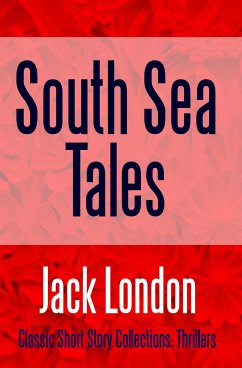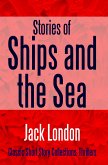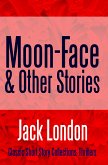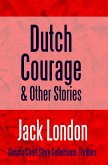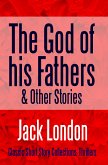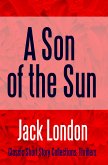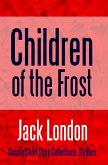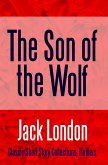South Sea Tales (1911) is a collection of short stories written by Jack London. Most stories are set in island communities, like those of Hawaii, or are set aboard a ship. These are darker Pacific tales, including "Mauki" and "The Terrible Solomans."
MAUKI (excerpt)
He weighed one hundred and ten pounds. His hair was kinky and negroid, and he was black. He was peculiarly black. He was neither blue-black nor purple-black, but plum-black. His name was Mauki, and he was the son of a chief. He had three tambos. Tambo is Melanesian for taboo, and is first cousin to that Polynesian word. Mauki's three tambos were as follows: First, he must never shake hands with a woman, nor have a woman's hand touch him or any of his personal belongings; secondly, he must never eat clams nor any food from a fire in which clams had been cooked; thirdly, he must never touch a crocodile, nor travel in a canoe that carried any part of a crocodile even if as large as a tooth.
Of a different black were his teeeth, which were deep black, or, perhaps better, LAMP-black. They had been made so in a single night, by his mother, who had compressed about them a powdered mineral which was dug from the landslide back of Port Adams. Port Adams is a salt-water village on Malaita, and Malaita is the most savage island in the Solomons--so savage that no traders or planters have yet gained a foothold on it; while, from the time of the earliest bache-de-mer fishers and sandalwood traders down to the latest labor recruiters equipped with automatic rifles and gasolene engines, scores of white adventurers have been passed out by tomahawks and soft-nosed Snider bullets. So Malaita remains today, in the twentieth century, the stamping ground of the labor recruiters, who farm its coasts for laborers who engage and contract themselves to toil on the plantations of the neighboring and more civilized islands for a wage of thirty dollars a year. The natives of those neighboring and more civilized islands have themselves become too civilized to work on plantations.
Mauki's ears were pierced, not in one place, nor two places, but in a couple of dozen places. In one of the smaller holes he carried a clay pipe. The larger holes were too large for such use. The bowl of the pipe would have fallen through. In fact, in the largest hole in each ear he habitually wore round wooden plugs that were an even four inches in diameter. Roughly speaking, the circumference of said holes was twelve and one-half inches. Mauki was catholic in his tastes. In the various smaller holes he carried such things as empty rifle cartridges, horseshoe nails, copper screws, pieces of string, braids of sennit, strips of green leaf, and, in the cool of the day, scarlet hibiscus flowers...
About Jack London: Jack London (1876-1916), was an American author and a pioneer in the then-burgeoning world of commercial magazine fiction. He was one of the first Americans to make a lucrative career exclusively from writing. London was self-educated. He taught himself in the public library, mainly just by reading books. In 1898, he began struggling seriously to break into print, a struggle memorably described in his novel, Martin Eden (1909). Jack London was fortunate in the timing of his writing career. He started just as new printing technologies enabled lower-cost production of magazines. This resulted in a boom in popular magazines aimed at a wide public, and a strong market for short fiction. In 1900, he made $2,500 in writing, the equivalent of about $75,000 today. His career was well under way. Among his famous works are: Children of the Frost (1902), The Call of the Wild (1903), The Sea Wolf (1904), The Game (1905), White Fang (1906), The Road (1907), Before Adam (1907), Adventure (1911), and The Scarlet Plague (1912).
Dieser Download kann aus rechtlichen Gründen nur mit Rechnungsadresse in A, B, BG, CY, CZ, D, DK, EW, E, FIN, F, GR, H, IRL, I, LT, L, LR, M, NL, PL, P, R, S, SLO, SK ausgeliefert werden.

